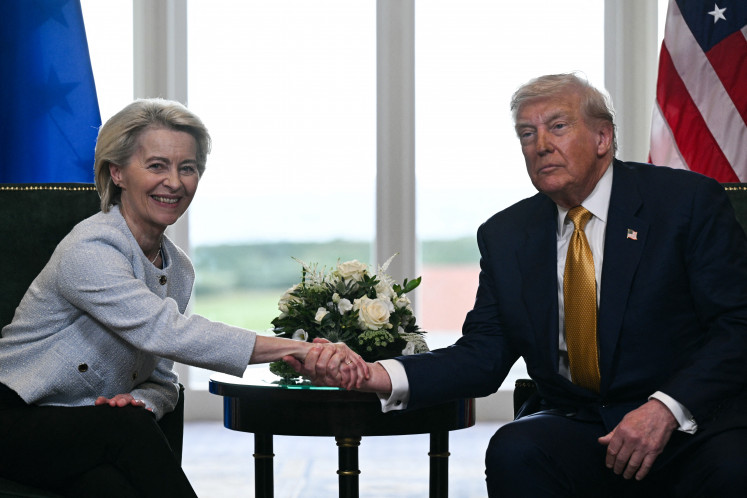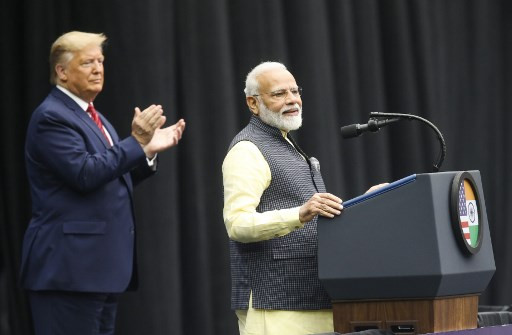Popular Reads
Top Results
Can't find what you're looking for?
View all search resultsPopular Reads
Top Results
Can't find what you're looking for?
View all search resultsChina targets Nvidia with antitrust probe, escalates US chip tensions
Change text size
Gift Premium Articles
to Anyone
C
hina said on Monday it has launched an investigation into Nvidia over suspected violations of the country's anti-monopoly law, in a move widely seen as a retaliatory shot against Washington's latest curbs on the Chinese chip sector.
The statement from the State Administration for Market Regulation announcing the probe did not elaborate on how the US company, known for its artificial intelligence and gaming chips, might have violated China's anti-monopoly laws.
It said the US chipmaker was also suspected of violating commitments it made during its acquisition of Israeli chip designer Mellanox Technologies under terms outlined in the regulator's 2020 conditional approval of that deal.
Nvidia's shares closed 2.5 percent lower on Monday. A Nvidia spokesperson said the company worked hard to "provide the best products we can in every region and honor our commitments everywhere we do business. We are happy to answer any questions regulators may have about our business."
The investigation comes after the US last week launched its third crackdown in three years on China's semiconductor industry, which saw Washington curb exports to 140 companies, including chip equipment makers.
"It's [the probe] unlikely to have much of an impact on the company, particularly in the near term, because most of Nvidia’s most advanced chips are already restricted from being sold into China," said Bob O'Donnell, chief analyst at TECHnalysis Research.
In a sign that China intends to fight back strongly against the latest move, shortly after Washington's announcement Beijing banned exports to the United States of the critical minerals gallium, germanium and antimony.
On the same day, four of the country's top industry associations issued a rare and coordinated response saying that Chinese companies should be wary of buying US chips as they were "no longer safe" and buy locally instead.
Nvidia has been one of the many companies caught up in the US-China frictions. An earlier round of export curbs by the US stopped Nvidia from selling its most advanced AI chips to China, prompting it to come up with new China-specific versions that were compliant with US export controls.
"It's clear that the Chinese government is trying to react against recent restrictions from the US, but their ability to impact the US semiconductor industry continues to decrease over time," O'Donnell said.
Nvidia dominated China's AI chip market with a more than 90 percent share before these curbs. However, it faces increasing competition from domestic rivals, chief among them being Huawei. China accounted for around 17 percent of Nvidia's revenue in the year to the end of January, sliding from 26 percent two years earlier.
In 2020, the company won a key approval from China for its acquisition of Mellanox Technologies, despite concerns that Beijing could block the deal due to US-China trade frictions.
Beijing's approval set multiple conditions for Nvidia and the merged entity's China operations, including prohibitions on forced product bundling, unreasonable trading terms, purchase restrictions and discriminatory treatment of customers who buy products separately.
The last time China launched an anti-monopoly probe into a high-profile foreign technology firm was in 2013 when it investigated Qualcomm's local subsidiary for overcharging and abusing its market position in wireless communication standards.
Qualcomm later agreed to pay a fine of $975 million, which at the time was the largest China had ever handed out to a company.










